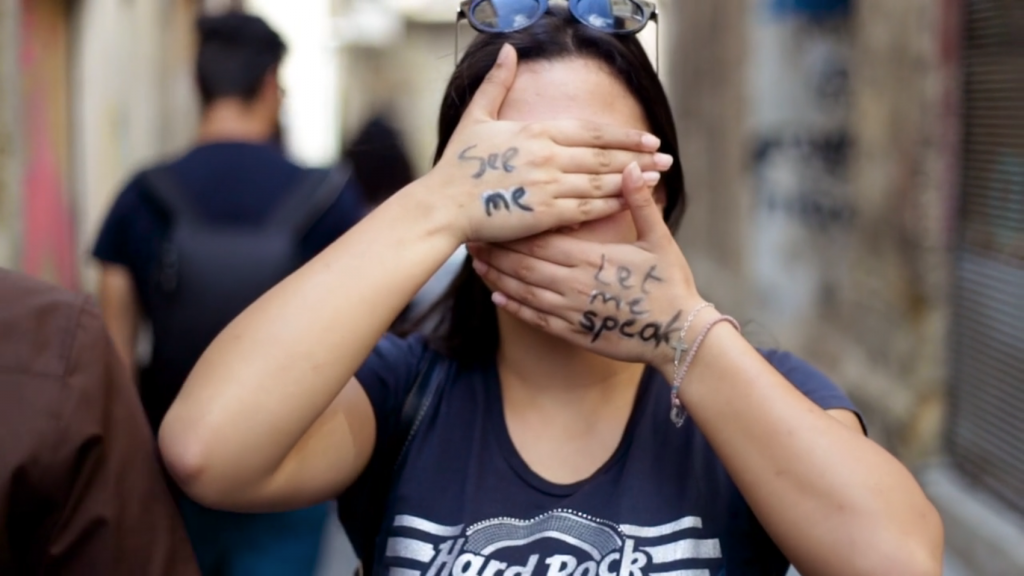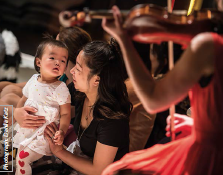The arts empower children to make sense of the world and their rights. That’s why we must do more to support access to creative experiences from the earliest age
Call 24 offers a strong foundation for active citizenship in the future, argues Media Education's Iain Shaw
The power of identity and belonging
Who am I? How do I know who I am? Why does anyone like me? How can I defend myself against rejection?
We never finish searching for the answers to these kind of big questions. It takes everyone a lifetime. The individual and collective stories we both hear and tell are powerful because they shape our ever-evolving individual and collective senses of identity and belonging.
Acceptance of identity and negotiating belonging are at the centre of how we understand who we are as individuals and what we understand the wider society to be. We need to recognise that these acceptances, and the negotiations around them, are political. They are political in two senses:
- In relation to our views about social relationships that involve power or authority, and
- In the hegemony and discourses that are dominant in the ways that we think about ourselves (or others) and how we are valued or treated.
So, to exist is to be political. The world is unequal and unjust so we are all affected by partisan interest and political ideology. We experience these as combinations of privilege and entitlement and inequality and discrimination. These contexts show that, by existing, our children and young people are part of that political world too.
Of course, our children and young people have rights through legislation such as the UNCRC. For example, Article 12 states that children and young people have a right to have their voices heard and to be included in decisions which directly affect their lives.
But, what prepares them to exercise these rights? Is it even possible to exercise your rights if you don’t know who you are, what you think or how you belong? It is very difficult to meaningfully exercise your rights if you don’t know where you fit in to your family, your community or your society. And, if you don’t know who you are or what you want to say, how can you be taken seriously – how do you count?
We need time and space for children and young people to explore who they are and to find reasons to accept and even learn to like themselves. This is why creativity and arts should be seen as core curriculum at the earliest age.
Children and young people need the means to come to terms with who they are as people and to generate sufficient resilience to recognise their own legitimacy and their right to independent views.

Children and young people need to make sense of themselves and the world that they are experiencing. One of the best and most effective ways of exploring identity and belonging is through high quality, innovative arts experiences – not just as a consumer but as a creator too.
Art is a political act. It provides the tools for making meaning. Making meaning is itself political.
So, we need the arts to do more. After all, as Marcel Duchamp said ‘Artmaking is making the invisible visible’.
With an existential threat to the planet through climate change and a world economy which causes rising inequalities and increasing political polarisation, we need to prepare our children and young people to have their say and to actively contribute to shaping the future.
The views of children and young people certainly need to be more visible. The arts are a powerful tool for children and young people to share their stories, explore and form their own views, set their own agendas and build their capacities to advocate for them.
For me, Call 24 of Children in Scotland's 25 Calls campaign is a vital part of the way that we can create a better society where everyone:
- has a good sense of their own identity
- has a firm sense of their own values
- recognises their own rights and the rights of others
- can articulate their own vision for the society they want to see
- recognises their individual and collective strengths
- understands their own power to make the changes they want to see in the world.
Iain Shaw is part of the Development Team and a Director at Media Education.
He is responding here to Call 24 of our 25 Calls campaign from Starcatchers, "Ensure all children can participate in high quality innovative arts experiences from the earliest age." Click here to read Call 24.
Media Education was set up in 1989 specifically to work with people furthest from power in order to move individuals from complaint to effective, reasoned argument where they advocate for themselves to create positive change. Media Education’s production team combine expertise in filmmaking and facilitation, nurturing trust and working sensitively and supportively with people from a wide range of abilities and backgrounds.
Click here to find out more about Media Education

About the author
Iain Shaw is part of the Development Team and a Director at Media Education
Click to visit the website
Call 24 – from Starcatchers
Ensure all children can participate in high quality innovative arts experiences from the earliest age
Click to read the full call25 Calls campaign
Find out more about the 25 Calls campaign, view press coverage and read further responses
Click to find out more